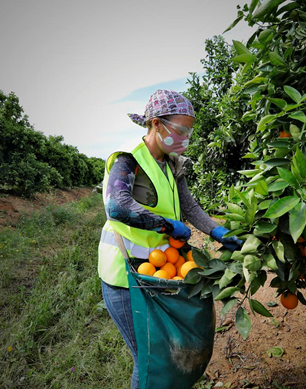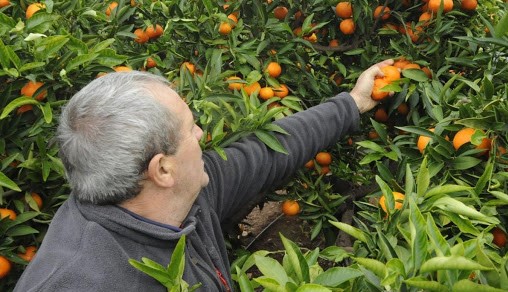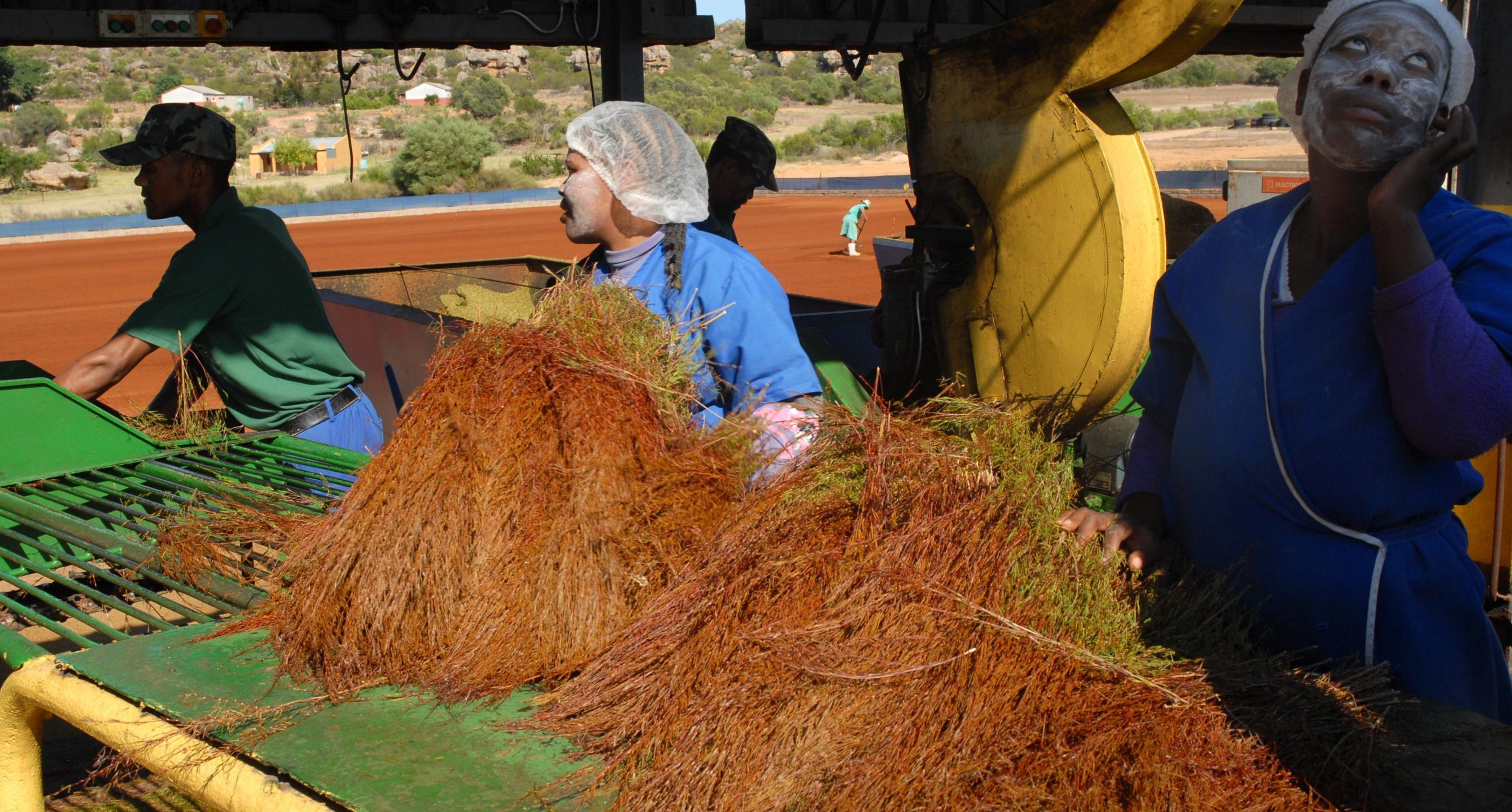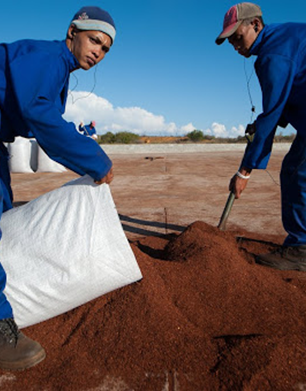South African rooibos and Valencia oranges

|
We differentiate between globalized trade and fair global trade. Globalized trade tends to always harm the farmer against fair trade that puts the person at the center of decision-making. A globalized market seeks economic benefit at the expense of human rights and the environment under a kind of big lie that is "consumer freedom". Thanks to global transport, we can get products that cannot be produced in our country and also almost at any time of the year. This advantage is a double-edged knife in trade relations, and a clear example is our EU-South Africa relations. When we suffer unfair trade agreements
The European Union has a very unfavorable agreement for European citrus growers, mainly our Valencian producers, since the period in which South African orange and citrus fruits can enter the Community market without tariffs and the reduction of the tariff of the current 16% will be reduced annually progressively until it is zero in 2025. From the European Union, for example, we have been importing rooibos in abundance for decades without any control and at a ridiculous price. The difference is that South Africans produce rooibos and oranges, and Europeans only oranges, and the European consumer in theory benefits from a low price for fruit and herbal teas because in South Africa they pay less. Gross mistake.
In this globalized market, consumers want to have a fresh food such as fruit throughout the year in their kitchens. It is a great contradiction of the system and especially of the countries of southern Europe, such as Spain, which does produce oranges. The transport of food out of season in the southern hemisphere has several damages in its quality and in its ecological impact, which, as often happens, are more united than ever in this example. The oranges that come from South Africa have to be refrigerated to bring them by boat and upon arrival at our supermarket shelves they have already lost many flavor qualities. Having them stored in cameras is an ecological and environmental waste, and very often their removal coincides with the new Mediterranean orange, forcing the merchant to drop prices to get rid of the stock by making it cheaper. |
"The transport of food out of season in the southern hemisphere has several damages in its quality and in its ecological impact"
|
|
Unfair competition in the price of orangeThis drop in prices is one more unfair competition for the new orange since the agricultural seller has to lower the price as much as possible to attract customer service, which usually forgets the month of the year it is in and only looks at the most competitive offer without worrying of origin.
This tough competition is also due to two key factors:
Both factors are, in essence, fundamental to not being able to compete with the production costs of foreign fruit. If we add other climatic factors to these external factors, we have that the average price of Valencian orange has fallen by 23% compared to the previous year and in some citrus varieties its value has plummeted by half. According to the AVA-ASAJA union, more than 30,000 hectares of citrus are abandoned in the Valencian Country alone and that is due to the economic impossibility of picking the fruit. The truth is that it does not compensate them and it is a very sad image for the generations of farmers who have always worked the field. Fair rooibos benefits us all
If we go back to rooibos, on the other hand, which has always been cultivated in South Africa, and that geographically there is no other place in the world that meets the environmental conditions of Cape Town, we have that the large distributors are also pulling low prices. Here the farmer who suffers is not the Valencian, but the South African.
Fair trade has always taken into consideration that the necessary cost is not paid so that families in developing countries can meet their vital needs. Something recurring since times of colonization that European farmers are now suffering in their own meats with our local production. It is, in short, a model of exploitation that throws down the principles of food sovereignty. In this world and the cordial relationship that South Africa has with the Europeans, the principle of local production and fair trade should be used, whereby we prioritize the fruit produced in our fields in Valencia and that South African oranges are only complementary for times of temporary scarcity of our production. On the other hand, rooibos, which cannot be produced in Europe, but under fair trade principles, should have more room, with labor rights determining the tariff exemptions. Only in this way the European consumers will be able to help the Valencian producer and the South African producer at the same time with their purchase. |
"The large distributors are also pulling low prices. Here the farmer who suffers is not the Valencian, but the South African" |










Comments
Leave your comment